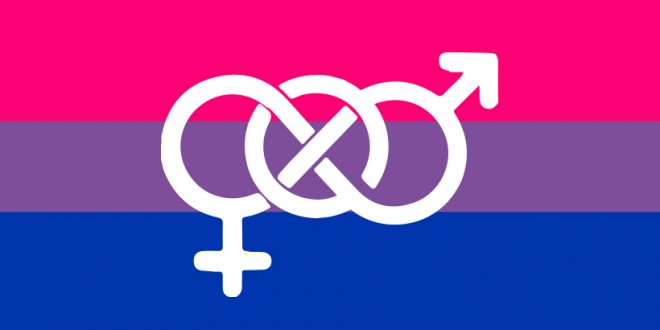September 23 is “Bi Visibility Day”
Today marks the “Bi Visibility Day” or the “International Celebrate Bisexuality Day.” September 23 is also the start of Bisexual Awareness Week which will culminate on September 30, 2018 but what is Bi Visibility Day exactly?
Observed since 1999, it is simply an annual celebration of bisexuality and diversity around the world where various events that highlight the bisexual community’s history and culture are held. To check the specific activities being held worldwide around this time, click here.
Is Bi Visibility Day relevant in this day and age?
Of course it is. As long as stereotypes and myths on bisexuality exist not to mention issues such as biphobia and discrimination then there is a need to raise awareness and understanding and to bring visibility to a community that is being continually discriminated against.
What is biphobia?
Biphobia refers to the “fear, hatred or intolerance of bisexual men and women. Biphobia is a term used to describe aversion felt toward bisexuality and bisexuals as a social group or as individuals.” Biphobia reportedly persists in both the straight and LGBT communities. Here are some beliefs people have that are considered biphobic:
- Bisexuality is just a phase you’ll grow out of eventually.
- What are you, gay or lesbian; you need to pick a side.
- Bisexuals are half-straight and will pick gender opposite theirs eventually. Alternatively, “I won’t date bisexual men (or women) because they will later on date or marry a woman (or a man).
- It is impossible to like both genders.
Today, bisexuals make up the biggest percentage of the LBGT community in the US. A study conducted by the UCLA’s Williams Institute in 2011 revealed that there are about 1.8 percent of the overall adult population who identify as bisexuals compared to the 1.7 percent who identify as gay or lesbian. Meanwhile, in 2016, the same organization revealed that there is an estimate of “0.6 percent of U.S. adults, or 1.4 million people, who identify as transgender.” A more recent study conducted by Pew Research Center in 2013 showed that 40 percent of their respondents, all of whom are LGBT Americans, identify as bisexual. In addition, 36 percent of their study participants identify as gay men, while 19 percent revealed they identify as lesbians, and 5 percent identify as transgender.
Here are some celebrities who are openly bisexual according to PinkNews: Drew Barrymore, Aubrey Plaza, Amandla, Angelina Jolie, Amber Heard, Fergie, Anna Paquin, Michelle Rodriguez, Vanessa Carlton, Kesha, Margaret Cho, and Bella Thorne.
Happy Bi Visibility Day, guys!




Cue the bigoted and intolerant posts from gay men who will say that bi men are really gay and afraid to commit. It’s perfectly normal to like men and not think of oneself as gay and to like women and not feel entirely straight. The gay world is much more intolerant of bisexuals than straights.
Those on your list are all female… is it easier for females to make that claim because their bodies behave differently than a male’s body? Hmmmm…
God. Someday. I wish for the day when the LGBT community realizes just how silly it is.
Who gives a fuck…… I consider myself sexually bi, but i only date men.. however, i feel no need to parade that fact, or to tell others how they should feel about my sexuality.
People need to smarten up and stop letting the sexual deviants whom have the look at me, I love being taboo life style run our communities . Gay pride. And utter joke. And now we have a bisexual day. Last I checked there was no special day for being straight…
The whole LGBT community is obsessed with pushing their beliefs on others, and being loud (not proud). Just be humans. Stop trying to separate us from the rest of humanity. The LGBT community has a long standing bigoted view. They love to tell everyone how to think and what to say, but do not practice it.
“Bi Visibility Day”
Just not able to fathom why anyone and everyone need to know anyone else’s orientation. Except, of course, anyone they’re sexually involved with. If they’re going to go public with their orientation, they’re making a statement, they’re drawing a line, they’re in many cases making a challenge. Not that orientation needs to be hidden, of course, but it also does not need to be flaunted or made an issue of.
It’s anyone’s choice to make their orientation public, but by doing so they’re opening themselves up to feedback and can’t complain when the feedback is less than praise, adoration, puppies, butterflies, and unicorns.